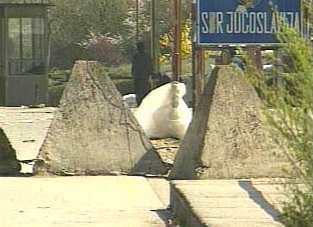 Dalrymple points out that ‘ever closer union’
Dalrymple points out that ‘ever closer union’
resuscitates old national stereotypes and antagonisms and increases the likelihood of real conflict.
He notes that politicians and bureaucrats,
like all people with bad habits, are infinitely inventive when it comes to rationalising the European Project, though they’re inventive in nothing else.
- Without the Union, they say, there would be no peace; when it’s pointed out that the Union is the consequence of peace, not its cause, they say that no small country can survive on its own.
- When it is pointed out that Singapore, Switzerland, and Norway seem to have no difficulties in that regard, they say that pan-European regulations create economies of scale that promote productive efficiency.
- When it is pointed out that European productivity lags behind the rest of the world’s, they say that European social protections are more generous than anywhere else.
- If it is then noted that long-term unemployment rates in Europe are higher than elsewhere, another apology follows.
 The fact is that for European politicians and bureaucrats,
The fact is that for European politicians and bureaucrats,
the European Project is like God — good by definition, which means that they have subsequently to work out a theodicy to explain, or explain away, its manifest and manifold deficiencies.
The personal interests of European politicians and bureaucrats,
with their grossly inflated, tax-free salaries, are perfectly obvious. For politicians who have fallen out of favour at home, or grown bored with the political process, Brussels acts as a vast and luxurious retirement home, with the additional gratification of the retention of power.
 The name of a man such as Herman Van Rompuy,
The name of a man such as Herman Van Rompuy,
whose charisma makes Hillary Clinton look like Mata Hari, would, without the existence of the European Union, have reached most of the continent’s newspapers only if he had paid for a classified advertisement in them.
Corporate interests,
ever anxious to suppress competition, approve of European Union regulations because they render next to impossible the entry of competitors into any market in which they already enjoy a dominant position, while also allowing them to extend their domination into new markets. That is why the CAC 40 (the French bourse benchmark) will have more or less the same names 100 years hence.
Dalrymple reminds us of the European Union’s role in corroding civil society.
Suppose you have an association for the protection of hedgehogs. The European Union then offers your association money to expand its activities, which of course it accepts. The Union then proposes a measure allegedly for the protection of hedgehogs, but actually intended to promote a large agrarian or industrial interest over a small one, first asking the association’s opinion about the proposed measure. Naturally, your association supports the Union because it has become dependent on the Union’s subsidy. The Union then claims that it enjoys the support of those who want to protect hedgehogs.
The best description of this process is
fascist corporatism, which so far lacks the paramilitary and repressive paraphernalia of real fascism. But as the European economic crisis mounts, that distinction could vanish.
One should not mistake the dullness of Eurocrats
for lack of ambition, or the lack of flamboyance for the presence of scruple. History can repeat itself.
Dalrymple says that whenever he reads the French press on the subject of the European crisis,
I’m struck by how little questions of freedom, political legitimacy, separation of powers, representative government, or the rule of law feature, even in articles by academic political philosophers. For them, the problem is mainly technical: that of finding a solution that will preserve the status quo (there is no such solution, but intelligent people searched for the philosopher’s stone for centuries).
As for the British political class,
it is composed largely of careerists,
and in the world of the Eurocrats,
ignoring arguments is the highest form of refutation.
 The European political class treats the continent as if it were one big happy family with a population gaily marching in unison behind its leadership. The truth, Dalrymple points out,
The European political class treats the continent as if it were one big happy family with a population gaily marching in unison behind its leadership. The truth, Dalrymple points out,














